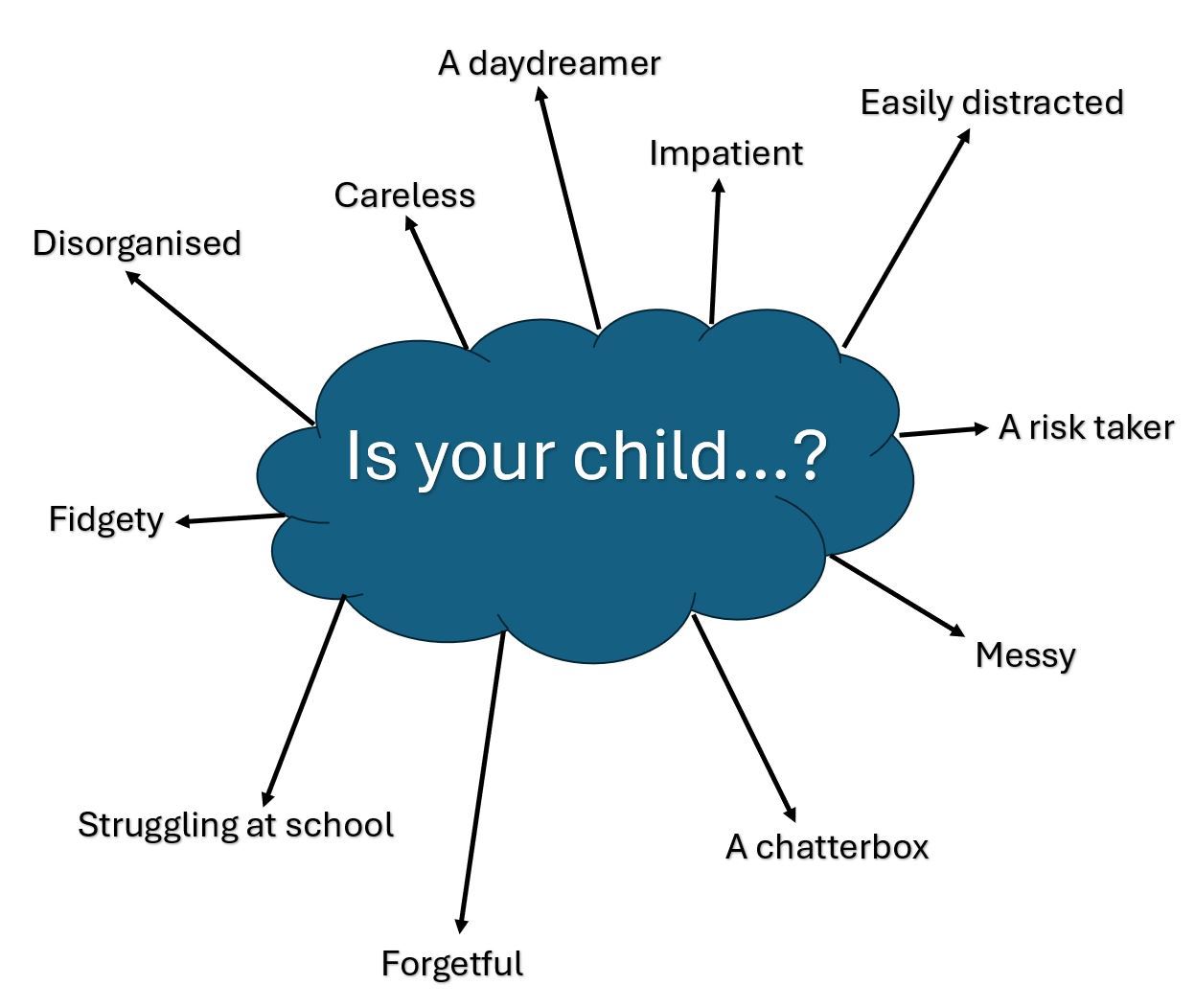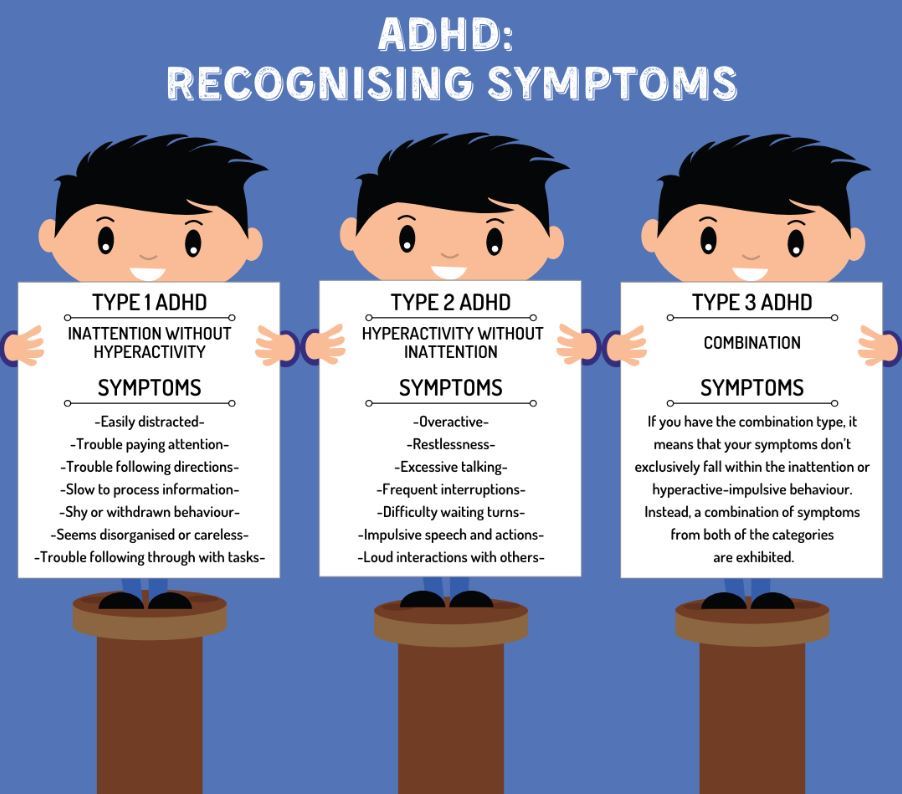ADHD in Children


The World Health Organisation (WHO) identifies Attention Deficit Hyperactivity Disorder (ADHD) as one of the most common mental disorders. It affects 5–8% of children, and often lasts into adulthood. ADHD affects a child’s learning and their functioning in daily life. It has three main features:
-
Inattention – not being able to stay focused,
-
Hyperactivity – excess movement that is not appropriate to the setting or excessive fidgeting, tapping or talking
-
Impulsivity – acting hastily without thinking, and in a way that may have high potential for harm.
So you have suspicions your child may have ADHD. What next?
Firstly, research ADHD. We recommend visiting sites such as NHS UK, WHO and ADHD UK. Many children go through phases where they're restless or inattentive. This does not necessarily mean they have ADHD.
If you have any concerns or suspicions, please first discuss with your Health Visitor (if under the age of 5), or if they attend nursery or school, please speak to the teacher or the Special Educational Needs Co-ordinator (SENCO).
Ask how they behave in school generally and what their friendships and interactions are like. The conversation should be around any difficulties your child is facing and whether there may be an underlying cause for them that would warrant further assessment. There are many causes of difficulties in a child’s development and the question of ADHD will be considered as part of the whole picture. Remember, not all children will present their difficulties at school and will mask, resulting in outbursts and reactive behaviours at home.
Your child's school may be able to introduce provisions such as fidget toys and weighted blankets without the need for a formal diagnosis.
The school agree. Now what?
There are 3 main referral pathways to consider. These are listed below:
NHS referral - Local
Your child’s school can make an NHS referral for your child to have a developmental assessment (Note: Some areas have rules on referral including needing both School and GP agreement to refer. Please talk to your local school to confirm the local rules). Depending on their age the referral may be to the local Developmental Paediatric team or to the Child and Adolescent Mental Health Service (CAMHS). During this referral, other agencies may be invited to support you and your child such as an educational psychologist or speech and language therapist (SALT).
NHS referral - Right to Choose
If you are based in England under the NHS you now have a legal right to choose your mental healthcare provider and your choice of mental healthcare team. This important legal right also includes your choices for your child as well. This means that, for instance, should you decide the waiting time for your ADHD assessment is too long, then you can choose alternative providers. For more information and a list of exclusions, please click here. If you decide to go with the Right to Choose pathway, please make an appointment with our Advanced Nurse Practitioner, Jane Setchell, who can discuss the referral process with you. It would be very beneficial if you obtained a supporting letter from the school prior to this appointment, and completed the Parent Screening Tool or Adolescent Screening Tool (dependant on age).
Private referral
Long waiting lists and lack of accessibility of Right to Choose throughout the UK means private diagnosis and treatment is a serious consideration for many, despite the financial cost often being a significant sacrifice. Most private assessment providers do not require a GP or School referral for a Private Assessment, please check with your provider.
When will my child have an assessment?
Once the referral is accepted your child will have an initial assessment either by a doctor, a developmental paediatrician or a child psychiatrist. The assessment will usually involve looking at all aspects of your child’s development and in particular any areas that they struggle with. It usually lasts between 60 and 90 minutes and will involve questions for yourself and age appropriate questions for your child. In some cases it may also involve a play based developmental assessment for your child. The aim of the assessment is to establish whether there is a likely underlying developmental cause for any difficulties your child has. Wait times vary amongst providers. Please contact your provider for wait times and referral updates.
What happens after assessment?
Your child may receive a diagnosis, we will be made aware of this via your chosen provider. At Cross Keys we are unable to enter into shared care treatment with private providers. If a medication is initiated, this will need to be prescribed privately. You can request to your GP that a referral is made to the local BHT commissioned NHS providers. However waiting times are long, and we would only be able to take over prescribing once assessed on the NHS and stabilised on medication with an appropriate shared care protocol.
Resources:
There are some great resources available to help you come to terms with and understand ADHD.
Page created: 03 June 2021